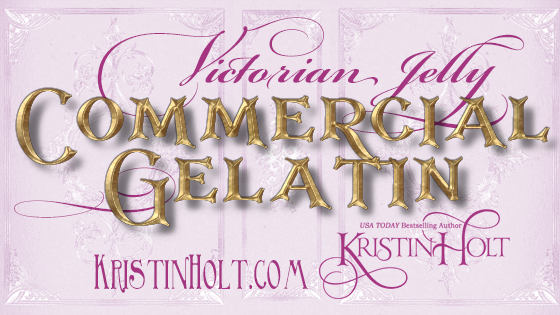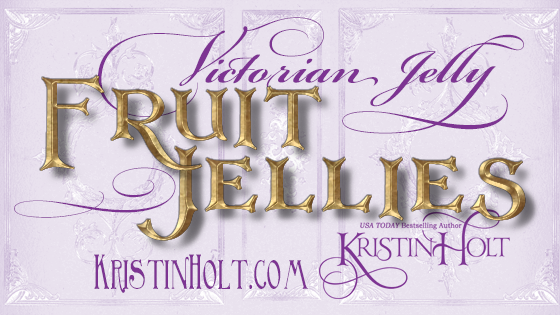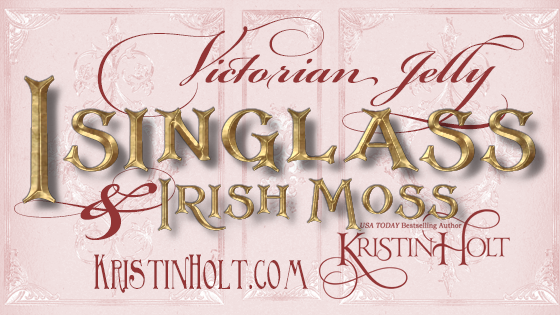
by Kristin Holt | May 28, 2022 | Articles
Credit goes to a Victorian-era inventor for out-of-a-box gelatin. What an amazing labor-saving invention! Until now, wives and daughters everywhere had been making gelatin out of pigs feet and a good deal of elbow grease.
How did nineteenth century scientists manage to capture the essence of gelatin and put it in a box? And how much did it cost?

by Kristin Holt | Aug 25, 2021 | Articles
Nineteenth-century recipes for fruit jellies–the kind spread on toast or between cake layers. Vintage details instruct cooks on jellies (and jams) made of raspberry, cranberry, apple, strawberry, quince, three hues of currant, peach, plum, cherry, gooseberry, and more. How they capped their jelly tumblers might surprise you…

by Kristin Holt | Apr 12, 2021 | Articles
Victorian Jellies were all the rage throughout nineteenth-century America and Victoria’s British Isles.
Through mid-century, cooks relied on various gelling agents to set up their moulded creations. Two of those articles from the sea–isinglass and Irish moss–are illustrated by means of Victorian-era recipe books and newspaper advertisements.











